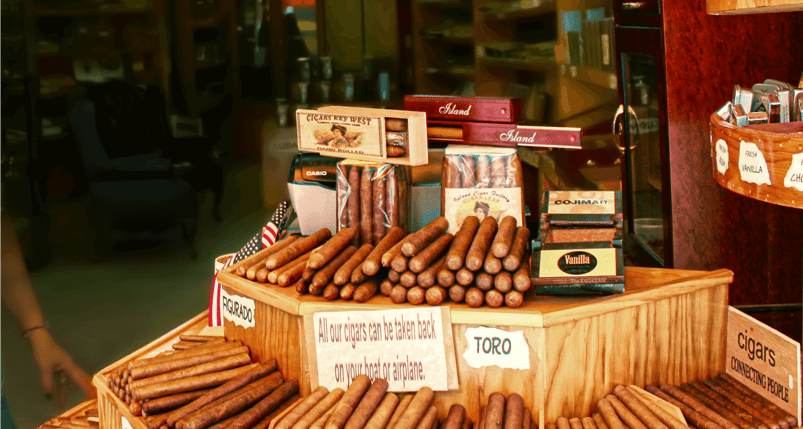How Much Do Smoke Shops Pay Employees? Average Labor Costs
Any entrepreneur knows that controlling costs is one of the most critical parts of setting your business up for success. You need to plan for expenses, spend cash on critical costs, and pinch pennies where you can.
But where do labor costs fit into that equation for smoke shops?
Employee payroll can be a significant expense — and with good reason. Workers in smoke shops typically perform various duties, from managing inventory to providing excellent customer service. And because talented, reliable staff are invaluable for any retail operation, you must offer adequate compensation to attract and retain a strong team. But how much do smoke shops pay employees, on average?
This post walks through critical insights and context related to how much smoke shops pay employees, so you can calculate your estimated labor costs. Then, we’ll discuss three other ongoing costs you must consider when budgeting for your smoke shop.
How Much Do Smoke Shops Pay? (And How Much Do They Make?)
Before we examine how much smoke shops pay employees, let’s answer another critical question: How much do smoke shops make?
Revenue can vary greatly depending on the location and size of your store. However, many smaller independent smoke shops earn around $50,000 to $100,000 in gross sales annually. Of course, profits depend on various factors, including rent, inventory, and wages paid to staff.
Related Read: How Much Does It Cost To Open a Smoke Shop? A Quick Guide
Smoke shop owners typically pay their workers an hourly wage above minimum wage to attract and retain quality talent. As of this writing, the average hourly pay for smoke shop workers across the United States is $16.63. You can calculate your expected labor costs by multiplying the figure obtained by the number of employees required and your hours of operation.
Of course, you can pay your workers less, opting for offering minimum wage instead of this higher average figure. But there are a few key advantages to paying smoke shop employees more appropriately:
- Easier recruitment and retention of staff
- Better quality of customer service and salesmanship
- Higher employee morale (which often translates into better customer interactions)
Smoke shop owners can build a knowledgeable, experienced, and motivated team by budgeting appropriately for labor and offering fair pay rates. Investing in your staff will pay off in the long run in the form of more loyal customers, less shrinkage from employee theft, and fewer resources wasted on hiring and training replacement workers.
Other Ongoing Smoke Shop Costs
Staffing isn’t the only ongoing cost smoke shop owners must budget for. Let’s explore some other consistent costs you need to prepare for when opening your smoke shop.
1. Storefront Costs
Running a retail store involves many location-based expenses that smoke shop owners need to account for. First, the monthly lease or rent payment to your landlord for the physical space typically takes a big bite out of the budget. Be sure to negotiate reasonable rates and contract terms upfront with the property manager.
Related Read: How To Start a Smoke Shop: Your 10-Step Guide to Success
Your utility bills also add up quickly. Keeping the lights on and the space climate-controlled with electricity, gas, and water builds ongoing costs, so prepare for these costs each month.
You want insurance in case disaster strikes, too. Fire, flood, or theft could cause major inventory and equipment damage without proper coverage, so shop for reasonable property insurance rates.
You should also prepare for maintenance and repairs. Aside from regular store maintenance, sometimes plumbing goes awry, A/C units break down, or other structural issues need repair. Having a reserve fund helps handle surprise storefront repairs or improvements down the line.
And we can’t forget about security. Securing merchandise and assets with surveillance cameras, alarm systems, or other theft deterrents is non-negotiable. Sometimes, installation can be a significant upfront investment, but that’s not where the costs end. Once you have your security system, you must consider monthly monitoring fees or equipment upkeep.
2. Inventory Costs
Inventory costs are another ongoing cost you must prepare for when operating your smoke shop. After all, you can’t run a successful store if your shelves are empty. At the same time, excess inventory sitting around unused ties up cash. Balancing supply and demand keeps customers happy while optimizing profit margins.
To ensure you have enough stock of your bestselling products, invest in storage space. Negotiate affordable fees and optimize your inventory reordering process. Use a point of sale (POS) system with automated reordering to keep the minimum stock on hand to meet customer demand.
Related Read: How To Keep Track of Smoke Shop Inventory: 8 Tools & Tips
You must also consider the cost of shrinkage. Shoplifting, damage, and internal theft, especially on expensive glass pieces or boxed cigar cartons, add up. A few ripped-off vape mods here, some smashed bubblers there — preventing loss incidents through security procedures can save you thousands annually.
Finally, be sure to consider seasonality when calculating your inventory costs. Careful analysis of sales patterns lets you plan purchases based on predicted demand for niche products throughout the year.
3. Technology and Equipment Costs
Modern smoke shops rely on various software, hardware, and other equipment to run smoothly. Investing in a robust point of sale system may seem like a significant initial expense, but it pays dividends through increased transaction efficiency, inventory visibility, and sales insights. A solution like Cigars POS, explicitly designed for smoke shops, helps you manage tasks from age verification to inventory management, allowing you to run your store more efficiently.
Related Read: Smoke Shop POS System: 6 Features and Benefits
Invest in security equipment like high-quality cameras and alarms to prevent theft. There will be initial costs, but you must also remember to factor in ongoing monitoring fees and maintenance.
Reliable internet and phone services are another ongoing expense you must consider for your store. Plus, investing in a domain for your store website can help you attract and engage digital-first clientele.
Next, don't forget general hardware maintenance — from humidors to product cases, sharp counters to lighting displays, ensuring proper functioning falls on shop owners directly. Factor in tech upgrade budgets over time, too.
How Much Do Smoke Shops Pay Employees? Running a Profitable Store
When reviewing payroll budgets, smoke shop owners should factor in hourly rates averaging $16 to $17 per hour to attract and retain talented staff who drive sales through exceptional service. However, human capital is only one ingredient in operating a genuinely profitable smoke shop.
Technology and infrastructure play huge roles as well. A high-caliber point of sale system like Cigars POS ties everything together to help managers make smart data-backed decisions around inventory purchasing, merchandising, loss prevention, and more — all while keeping up with compliance regulations.
Purpose-built features for tobacco retailers, such as age verification, carton-pack inventory tracking, sales report exporting, and custom label printing, optimize critical functions so you can grow your business. Schedule a personalized demo today to see how Cigars POS can help you easily manage your smoke shop.






